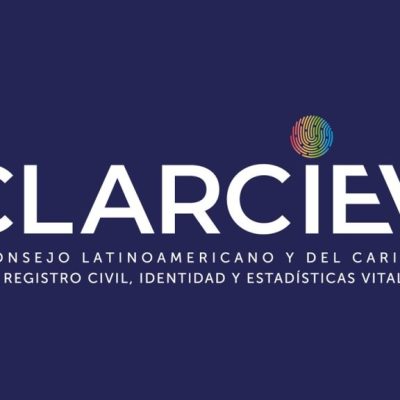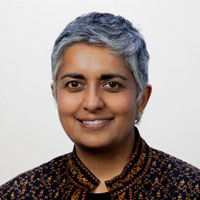Ensuring Vocational Inclusion for Stateless Individuals
Stateless individuals face daily obstacles in accessing basic services – whether opening a bank account, booking travel, or securing employment. One often overlooked but fundamental barrier is the absence of a “stateless” or “undefined” nationality option in digital forms and application systems. Without it, individuals are frequently forced to enter inaccurate information or abandon applications altogether. Employers, including legal and HR teams, are often unsure how to process applications from individuals without nationality, even when they have the legal right to work. This lack of clarity and inclusion in administrative systems contributes – often unintentionally – to vocational exclusion.
An encouraging step forward came in August 2024, when UNHCR became the first UN agency to update its recruitment platform to accommodate stateless applicants. This progress was the direct result of sustained engagement by the stateless-led organization Apatride Network, whose advocacy helped identify and address technical barriers in the application process, that previously prevented stateless people from applying. In collaboration with its legal and human resources teams, UNHCR resolved the dropdown menu issue and clarified internal procedures – creating a more inclusive and accessible path for stateless candidates.
This development represents more than a technical fix—it is a recognition of stateless individuals’ existence as well as valid applicants and future colleagues within the UN system. It illustrates how institutional systems can evolve through open dialogue and cooperation with affected communities. This example reflects how constructive partnerships can close systemic gaps and improve practices in line with shared commitments to equity and inclusion.
Importantly, this change also provides a replicable model for other UN agencies and international organizations, many of which encounter statelessness in their work. Greater participation by people with lived experience of statelessness helps design fairer systems and builds broader awareness of an often-overlooked human rights issue. Moreover, equitable access to opportunities promotes dignity and inclusion and contributes to long-term efforts to resolve statelessness through recognition, financial independence, and representation in public and professional life.
The action taken by UNHCR could serve as a strong catalyst, creating momentum for systemic change beyond the UN system. Administrative barriers like these are often present in various areas beyond just employment, including access to the financial sector, freedom of movement, and digital identification – domains where stateless individuals frequently experience exclusion. Apatride Network and its partners have already identified these challenges and are actively working across these sectors to promote structural inclusion. By leading by example, the UN system can help bridge other barriers and indirectly support the work of stateless-led organizations in advancing meaningful inclusion and equal rights for stateless individuals.
However, if this progress is to have a lasting impact beyond one institution or moment, it must be supported by ongoing effort and broader commitment. To ensure these changes are maintained and promote further advancement, we must:
• Raise awareness among stateless individuals about their ability to apply for UNHCR positions, creating meaningful opportunities for inclusion and empowerment.
• Highlight and promote UNHCR’s development and actively encourage all UN agencies and institutions to update their systems similarly.
• Strengthen collaboration between UN bodies and stateless-led organizations to maintain momentum and support ongoing progress.
• Incorporate the voices, experiences, and perspectives of stateless individuals into policy and practice. This will ensure future reforms are informed, inclusive, and sustainable, enhancing the UN system’s understanding and decision-making.
Jessica Schmieder
Project Manager, Apatride Network
5 December 2025

Latin American and Caribbean Civil Registration Week: An Initiative Ensuring Identity for All
The Latin American and Caribbean Council for Civil Registration, Identity, and Vital Statistics (CLARCIEV) is the organization behind the campaign “Latin American and Caribbean Civil Registration Week,” held from September 1 to 16, 2025, and which sought to safeguard the fundamental right to identity.
Under the slogan “Latin America and the Caribbean, a region without invisible people: identity for all!”, CLARCIEV intensified its efforts to register births, covering both children and adults who still lacked a birth certificate. As a result of the campaign a total of 32,177 birth registrations were performed.
Read more3 November 2025

One Year On: The Movement’s Journey Within the Global Alliance to End Statelessness
Proximity and privilege deeply shape whose voices are heard in the global struggle to end statelessness. For millions of stateless people, barriers such as geography, limited resources, and lack of access to documentation mean exclusion not only from their governments but also from the global humanitarian and advocacy spaces that claim to represent them. Meanwhile, those with passports and institutional power often move freely within international systems that remain inaccessible to the very people they aim to serve.
Read more22 October 2024

Ensuring the Resources to End Statelessness Together
The financial resourcing of statelessness research is one of the most challenging aspects of our work. Funders have heard of many other human right issues but, due to the often-unseen nature of statelessness, it remains an outlier. As a result, it is difficult for donors who are hearing about the issue for the first time to believe that such a problem can exist in the 21st century, let alone get to the point that they are convinced that this is an area that is worthy of their funding support.
As members of the Global Alliance to End Statelessness, we are committed to collaborative, coordinated action. This means helping ensure that we have the financial and other resources needed to catalyse and accelerate positive change. We believe that statelessness is solvable through a well-resourced whole-of-society approach.
Read more